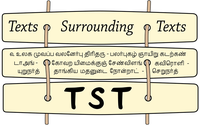India is among the top 20 economies in the world as it accounts for the 4% of the global GDP. With the rising attention towards the Indo-Pacific region and thanks to its geographical location, India gained a central role in the Asian continent's geopolitics. Therefore, the study of its socio-economic, political and cultural characteristics prove essential for a complete understanding of the area.

Shivadharma is a five-year research project financed by the European Research Council (ERC) and coordinated by Professor Florinda De Simini (University of Naples L'Orientale). Two Departments of the University of Bologna are also involved in the project: History, Cultures and Civilisation (contact person: Professor Marco Franceschini) and Classical Philology and Italian Studies (contact person: Professor Francesca Tomasi). The project aims at tracing the origins, development and diffusion of the Shiva religion in the Indian subcontinent, through the study of the earliest known Shiva corpus of texts, the Shivadharma – meaning The Doctrine of Shiva – which was mainly addressed to devout lay people.

Texts Surrounding Texts is a French-German project (ANR and DFG) in which Professor Marco Franceschini from the University of Bologna is involved. At the centre of the project there are the more than one thousand Indian manuscripts, that are stored inside the National Library of France, located in Paris, and inside the State Library and University Library of Hamburg. The project not only aims to digitalise the codes included in the two collections and to create online catalogues for a free consultation, but also seeks to conduct a detailed analysis of the “paratexts”. Usually following the main text of the manuscripts, paratexts seem to provide – either directly or indirectly – significant information about the origins as well as the process of creation, diffusion, preservation and dating of the manuscripts.

Dharma (“The Domestication of Hindu Asceticism and the Religious Making of South and Southeast Asia”) is an EU-funded project (Synergy Grant) located at the Centre national de la recherche scientifique, the École française d‘Extrême-Orient, the Humboldt-Universität in Berlin and the University of Naples L'Orientale. Professor Marco Franceschini from the University of Bologna is also involved in the project. The aim of Dharma is to investigate how, when and where the institutional basis of ancient Indian religious traditions were set. The focus on the socio-institutional context is preferred to a more doctrinal and philosophical one. In this light, the project favours the use of epigraphical sources while focusing on five macro-areas of India and Southeast Asia: Tamil Nandu, Deccan, the regions around the northern coast of the Bay of Bengal, the south-eastern areas of the Indochina and the main islands of “Indianised” Indonesia.
Those who are conducting or who are willing to start a research project on India, and would like to work together with the Asia Institute or to give visibility to their projects on this webpage, are kindly invited to send an email with a short description of their research project.